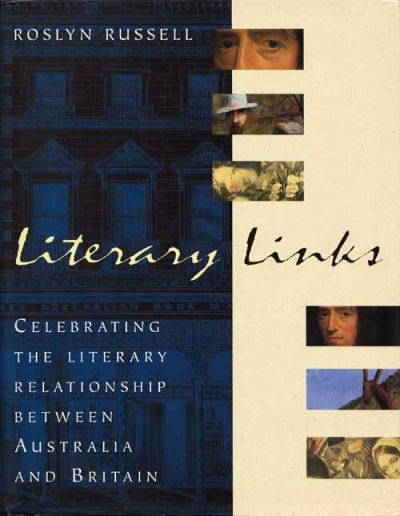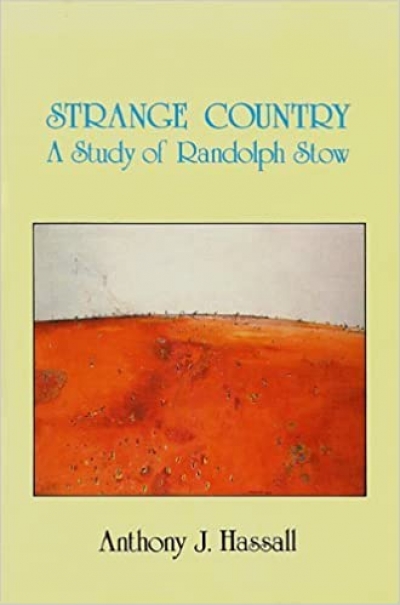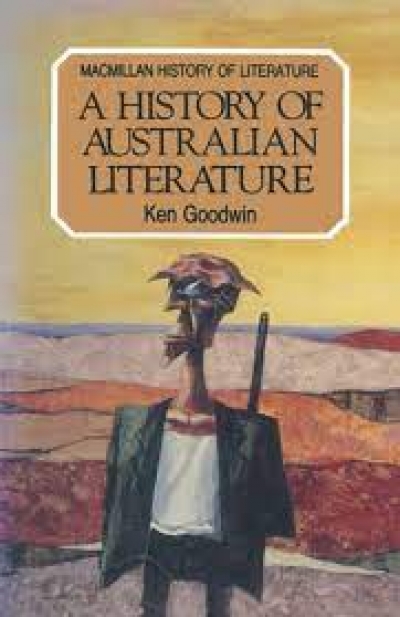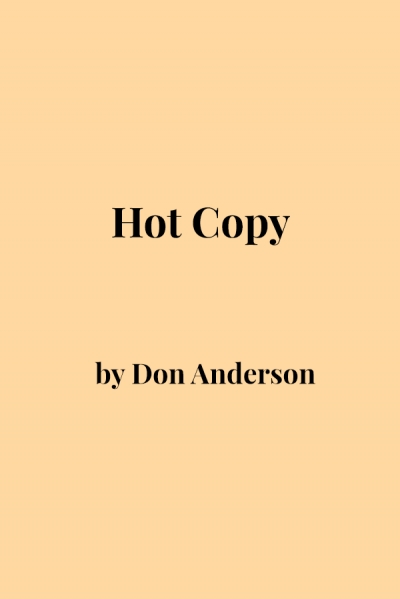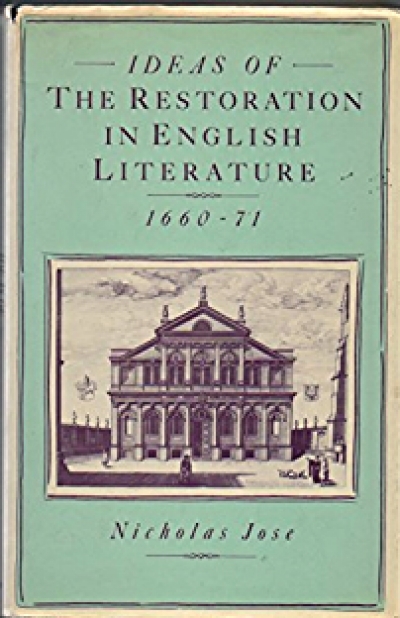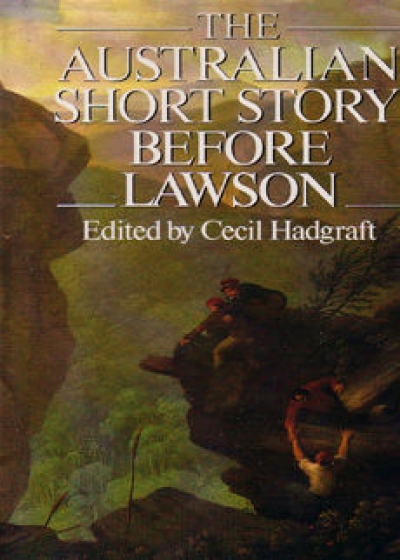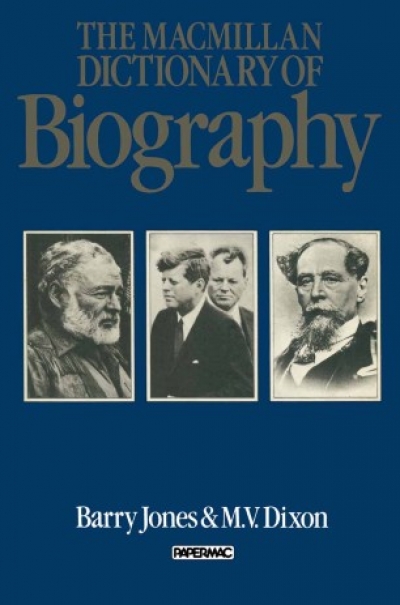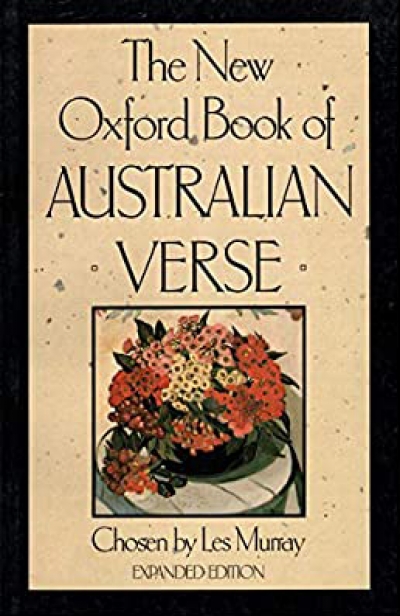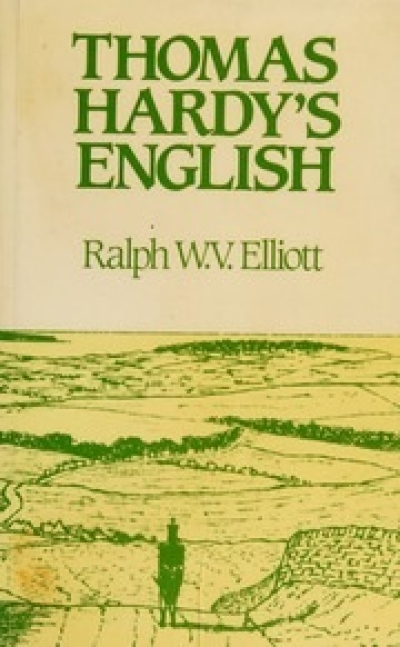Literary Studies
Literary Links: Celebrating the literary relationship between Australia and Britain by Roslyn Russell
I’ve always wanted to begin by declaring an interest. Roslyn Russell’s Literary Links gives me at last the opportunity I’ve been waiting for: so, I declare an interest – and only some very stern editing will prevent me from saying why!
... (read more)Strange Country: A study of Randolph Stow by Anthony J. Hassall
Professor Hassall’s study of Randolph Stow is indeed a strange country. A text which sets out to establish Stow as ‘a more important writer than is generally recognized’ and to show that his ‘best work bears comparison with Patrick White’s’ promises an intellectual engagement with either critics or the text or both which would lead to reassessment of Stow’s work. It appears that these are Aunt Sally’s – although Professor Leonie Kramer, who is presented as one of Stow’s ‘sterner “realist” critics’, can hardly be seen as such an aunt. Hassall puts her up but barely touches her, leaving the counterargument to Dorothy Green. Perhaps he’s being gentlemanly. However, to quote a paragraph from Green which asserts that ‘One of the greatest weaknesses of Australian criticism has always been its refusal to take religious ideas seriously’ is to take advantage of the lady. Hassall needs to fight his own battle against Leonie Kramer’s judgement of Stow’s work as being ‘quasi-religious’ and misguidedly experimental.
... (read more)The more I think about it the more I am convinced that Ken Goodwin must have found this a brute of a book to write. Not that difficulties are apparent in the writing. Far from it. It is simply that, in looking at it from a reviewer’s point of view, I am increasingly aware of the constraints under that the author must have suffered while managing to produce a book which the general reader and the interested undergraduate will find both interesting and useful.
... (read more)Twentieth Century Australian Poetry edited by Yasuko Claremont
Written in Japanese, this is an introduction to Australian people through Australian poetry. Yasuko Claremont is a long-time Japanese resident in Australia who studied Australian literature at Sydney University. Finding unacceptable the image, widely-propagated among the Japanese, of ‘jolly Australians who do not work as hard as the Japanese,’ she wrote this book to help the Japanese ‘get to the heart of the Australians,’ which, she thinks, can be done effectively through reading Australian poems in the language of the Australians.
... (read more)From the enlightenment to post-modernity, there has been one common rallying cry: ‘This is the age of criticism.’ Religious authority, natural rights and philosophical dogmatism have all been under critique for so long that criticism has almost come to seem natural, authoritative and is in danger of hardening into dogma. Little surprise, then, that outside the academy the word ‘criticism’ is seldom linked with the venerable discourse of theology, politics and philosophy but rather with a comparatively recent and fluid phenomenon: Literature.
... (read more)Ideas of The Restoration In English Literature, 1660–71 by Nicholas Jose
With Dryden out of favour and Rochester still only a cult enthusiasm, ‘Restoration literature’ is likely to evoke for most readers only stage comedy, yet likely to seem to a casual reader to promise only scholarly drudgery in justly neglected corners, crowned by an inadequate, hurried examination of a major work, Samson Agonistes, looking sadly astray in this company.
... (read more)The Australian Short Story Before Lawson edited by Cecil Hadgraft
It is surely one of the most widely believed tenets of Australia’s literary history that the short story has a special significance achieved with its rise to popularity in the 1890s under the patronage of the Bulletin and in the hands of a master craftsman like Henry Lawson. Orthodoxy has it that Australian literature was born in the 1890s: that is, it shucked off its colonial cast and developed a distinctly national stance with the emergence of what some call the tradition of formal bush realism and others the Lawson/Furphy tradition. So far as I know, no one has quibbled with the view put forward by Harry Heseltine in his introduction to the Penguin Book of Australian Short Stories (1976) that Henry Lawson was the ‘chronological founder of the tradition of the Australian short story’ and ‘the source of most that is imaginatively important in it.’
... (read more)The Macmillan Dictionary of Biography by Barry Jones and M.V. Dixon
Ah, unblissful ignorance. Having recently travelled through part of the Eyre Peninsula, I wish that I had known more about Edward John Eyre, English explorer and administrator.
... (read more)The New Oxford Book of Australian Verse edited by Les A. Murray
This book can read at times as though it were Les Murray’s revenge on Australian poetry. Of course, no anthology will please all of the people all of the time, but this one does not so much seem to represent any consistent view of what significant poems have been written in this country as Murray’s own projections about the kinds of poetry which ought to have been written here. The New Oxford Book of Australian Verse is quirky and opinionated, very ambitious in the ground it wants to cover, and yet ultimately hamstrung in its assemblage. It amounts to a quixotic attempt to see Australian poetry as a massively unified body of work, and Murray has played fast and loose with the material that was before him in order to reveal this unity.
... (read more)Confronted with a tide like Thomas Hardy’s English the reviewer is likely to exclaim waspishly ‘I know that!’, but any tendency towards frivolity disappears once one begins to read this book. This is an extraordinarily thorough, exhaustive and illuminating study of the amazingly varied resources Hardy drew on for his language. The book is part of a series known as The Language Library and it is the specifics of Hardy’ s actual use of words that Professor Elliott, now Emeritus Professor and Master of University house at the Australian National University, is concerned with.
... (read more)

